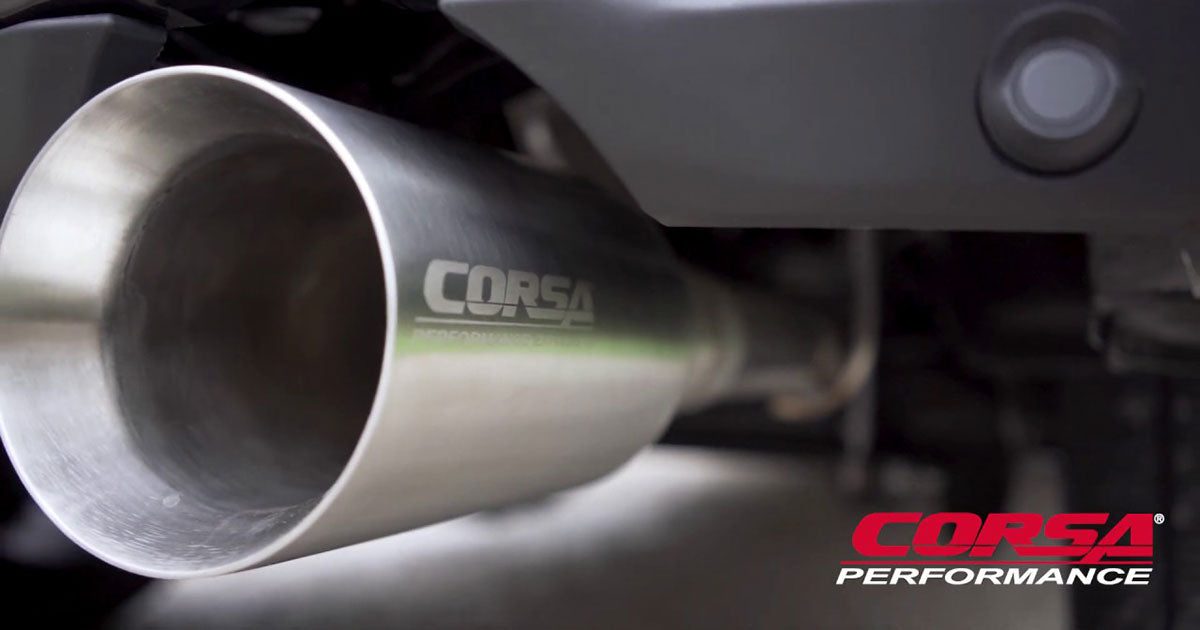What Makes an Exhaust Loud : The Secret Science Behind Its Roaring Power
An exhaust is loud because of the increased flow of exhaust gases and the presence of aftermarket modifications. When the exhaust gases flow quickly and encounter obstructions or changes in pipe diameters, it creates turbulence and noise.
Additionally, certain modifications like removing the muffler or replacing it with a straight pipe can amplify the sound. These modifications allow for a greater release of exhaust gases, resulting in a louder tone. As a result, vehicles with loud exhausts may have improved performance due to reduced back pressure.
However, it’s important to note that excessively loud exhausts may violate noise pollution regulations and can be irritating to others. So, it’s essential to strike a balance between an appealing sound and responsible noise levels.
Understanding The Mechanics Of An Exhaust System
Understanding the mechanics of an exhaust system is essential in comprehending what makes it loud. The key role of an exhaust system in a vehicle’s performance cannot be overlooked. This system is responsible for directing exhaust gases away from the engine, reducing noise, and improving engine efficiency.
An exhaust system comprises several components that work together to achieve its purpose. These components include the exhaust manifold, catalytic converter, muffler, resonator, and tailpipe. The exhaust manifold collects exhaust gases from the cylinders, while the catalytic converter reduces harmful emissions.
The muffler, as the name suggests, reduces noise produced by the engine. It achieves this by utilizing chambers and baffles that disrupt the sound waves. Additionally, a resonator may be included to further reduce noise and improve engine performance.
The tailpipe serves as the final outlet for the exhaust gases, allowing them to be expelled into the atmosphere. Various factors contribute to the loudness of an exhaust system, such as the design, size of components, and the presence of any modifications.
By understanding the mechanics of an exhaust system and its different components, one can better comprehend the factors that contribute to a loud exhaust.
Factors That Influence The Loudness Of An Exhaust
There are several factors that influence the loudness of an exhaust. One of the main factors is the engine size and power output. Engines with larger displacement and higher horsepower tend to generate more exhaust noise.
The design of the exhaust system also plays a significant role in determining the noise levels. Factors such as the length and diameter of the pipes, the presence of resonators or mufflers, and the arrangement of baffles and chambers can affect the sound produced by the exhaust.
The materials used in the construction of the exhaust system can also have an impact on the sound. For example, stainless steel exhausts tend to produce a deeper and more aggressive tone compared to other types of materials. Additionally, the thickness of the pipes and the presence of sound-deadening materials can contribute to reducing or enhancing the exhaust noise.
In conclusion, the loudness of an exhaust is influenced by the engine size and power output, the exhaust design, and the materials used in construction. By considering these factors, car enthusiasts can tailor their exhaust system to achieve the desired sound.
The Science Behind The Roaring Sound
Sound production in an exhaust system is a fascinating process. The first element to consider is the resonator. Resonators play a crucial role in creating a deep tone. They are specifically designed chambers that help to cancel out unwanted frequencies and emphasize the desired ones. By using different configurations and materials, resonators can shape the sound and make it louder.
Another important component influencing the sound produced by an exhaust is the muffler. Mufflers are responsible for reducing noise levels. They consist of baffles and sound-absorbing materials that control the flow of gases and minimize sound waves. The design and density of the muffler determine the extent of noise reduction and the overall sound profile of the exhaust system.
By understanding these mechanisms, manufacturers are able to fine-tune exhaust systems to achieve the desired sound characteristics. Whether it’s a throaty roar or a deep rumble, the combination of resonators and mufflers is what makes an exhaust loud and distinctive.
Notable Techniques To Increase The Loudness Of An Exhaust
There are several notable techniques that can be employed to increase the loudness of an exhaust:
1. Modifying exhaust piping and diameter: One way to make an exhaust louder is to alter the size and shape of the exhaust piping. By increasing the diameter of the piping, the flow of exhaust gases can be optimized, allowing for a louder sound. Additionally, changing the shape of the piping, such as using an X-pipe or H-pipe design, can enhance the sound by allowing for better exhaust scavenging.
2. Exploring the use of straight-through mufflers: Another method is to install straight-through mufflers, also known as glasspacks or cherry bombs. These mufflers have a minimalist design, with no baffles or chambers to restrict the flow of exhaust gases. As a result, they offer less noise reduction and produce a louder, more aggressive sound.
3. Installing electronic valve systems for adjustable sound levels: Electronic valve systems can be fitted to the exhaust system, allowing the driver to adjust the sound levels. These systems typically use a remote control or smartphone app to open or close the valves, altering the exhaust flow and producing different levels of noise.
| Technique | Advantages | Disadvantages |
|---|---|---|
| Modifying exhaust piping and diameter | Enhanced sound quality, optimized exhaust flow | Requires professional installation, potential impact on performance |
| Exploring the use of straight-through mufflers | Loud and aggressive sound, minimal restriction to exhaust flow | Possible legal restrictions, may produce excessive noise |
| Installing electronic valve systems for adjustable sound levels | Allows control over sound levels, versatile options | Additional cost, complex installation process |
The Benefits And Drawbacks Of A Loud Exhaust
Having a loud exhaust can provide certain benefits and drawbacks. On one hand, a loud exhaust is often associated with enhanced performance and engine efficiency. The increased airflow can result in improved horsepower and torque, leading to a more powerful driving experience. Additionally, a loud exhaust can create a more aggressive and sporty sound, adding to the overall aesthetic appeal of a vehicle.
However, it’s important to consider the legal implications and restrictions related to loud exhausts. Many jurisdictions have specific laws governing the maximum allowable noise levels for vehicles. Violating these regulations can lead to fines, penalties, or even vehicle impoundment. The noise pollution caused by a loud exhaust can also have negative effects on community relations. Excessive noise can disturb residents and create a negative perception of the vehicle owner.
| Enhanced Performance and Engine Efficiency | A loud exhaust can result in improved horsepower and torque, enhancing performance and engine efficiency. |
| Legal Implications and Restrictions | Many jurisdictions have specific laws governing noise levels. Violating these regulations can lead to fines and penalties. |
| Impact on Noise Pollution and Community Relations | A loud exhaust can cause noise pollution and disturb residents, resulting in negative community relations. |

Credit: www.corsaperformance.com
The Future Of Exhaust System Technology
The Future of Exhaust System Technology
The automotive industry is constantly evolving, and exhaust systems are no exception. Advancements in exhaust design have not only focused on improving performance but also enhancing the sound produced by the vehicle. With the rise of electric vehicles (EVs), the role of exhaust systems is changing. While traditional combustion engines rely on exhaust systems for releasing gases and minimizing backpressure, EVs don’t have the same requirements. As a result, the future of exhaust system technology lies in finding new ways to enhance the driving experience.
One area of innovation is in reducing noise pollution without compromising on the deep exhaust tone that many car enthusiasts crave. Manufacturers are exploring innovative techniques such as active exhaust valves that can modulate sound based on driving conditions. This technology allows for a more refined sound profile while also meeting stringent noise regulations.
| Potential advancements: |
|---|
| 1. Active exhaust valve technology |
| 2. Variable exhaust systems |
| 3. Sound-controlling software algorithms |
These advancements in exhaust system technology ensure that car enthusiasts can enjoy the exhilarating sound of their vehicles while minimizing the impact on the environment and surrounding communities.
Frequently Asked Questions Of What Makes An Exhaust Loud
How Do You Make The Exhaust Sound Deeper?
To make the exhaust sound deeper, you can install a performance muffler, remove or modify the resonator, or add an aftermarket exhaust system. These modifications can enhance the sound of your vehicle’s exhaust and give it a deeper tone.
What Exhaust Tip Is The Loudest?
The straight-through design of a Magnaflow exhaust tip is known to produce impressive sound levels. Its combination of internal perforations and acoustic packing ensures a deep and aggressive tone. Magnaflow exhaust tips are a popular choice for those interested in maximizing loudness.
What Factors Contribute To A Loud Exhaust?
A loud exhaust is typically the result of modifications made to the exhaust system. These modifications can include removing mufflers or installing larger exhaust pipes. The size of the engine and the type of exhaust system can also affect the volume of the exhaust.
Can A Loud Exhaust Increase Performance?
Yes, a loud exhaust can sometimes improve performance. By removing restrictions in the exhaust system, a louder exhaust can allow for better airflow, which can increase horsepower and torque. However, it’s important to note that every vehicle is different, and the impact of a loud exhaust on performance can vary.
Conclusion
Understanding what makes an exhaust loud is crucial for car enthusiasts. By considering factors like the design of the exhaust system, the type of engine, and the modifications made, one can achieve the desired level of sound. Whether it’s for performance or personal preference, an exhaust’s loudness adds excitement and character to the driving experience.
Embrace the roar, but always respect local noise regulations.






